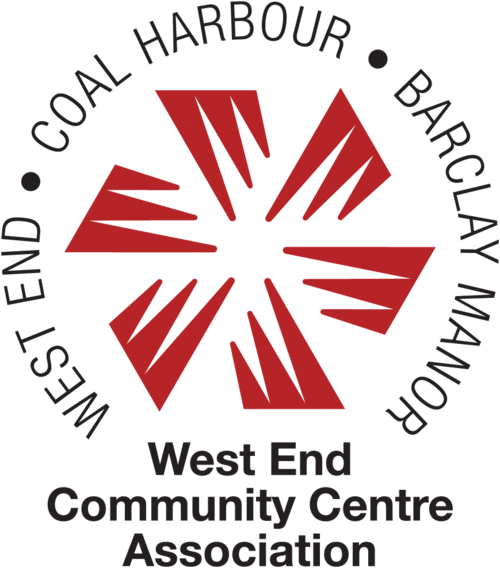STANLEY PARK NOTEBOOK
/A RANGER’S-EYE VIEW OF LIFE IN STANLEY PARK
Stanley Park ranger Justin Othman. (Mike McIntosh Photo)
by Jacqui Birchall
Life as a Stanley Park ranger seems like a dream job to me. Being in the park all day, surrounded by nature, observing the changes of the seasons, the migratory inhabitants of the park, the wonderful smells of the vegetation. A perfect antidote to the rat race. Or is it?
I heard about a particularly personable park ranger and one day, while reporting on a tree fire in Stanley Park, I was lucky enough to meet him.
His name is Justin Othman. Originally from Devon, England, Othman now calls Vancouver home
What do you need to become a park ranger, I asked?
Othman explained that requirements have changed over the years. Park rangers were originally required to have an environmental and ecology background, but the increasing number of homeless and the opiate crisis have changed the job requirements. Othman has a degree in ecology. He is also a people person with great interpersonal skills and a familial understanding of addiction and homelessness.
I found a recent job posting for a Vancouver Park Ranger online. The advertisement mentions that a valid security license and/or security experience is an asset. An understanding of the Powers of Arrest under the Criminal Code, the Charter of Rights and Freedoms, the Canada Evidence Act, and Mental Health First Aid Training are considered an asset.
Rangers and volunteers at work — please respect the signs. (Jacqui Birchall Photo)
Also required is some knowledge of the natural history and ecology of the assigned area, a valid Standard First Aid Certificate with CPR-C and AED, as well as the ability to walk and to ride a bicycle long distances and work under varying weather conditions.
Further research shows that about ten percent of Vancouver park rangers are female.
The Vancouver park rangers cover 240 Vancouver parks from 6 a.m. until midnight daily. Generally speaking, the rangers are assigned work in different parks. The parks have a huge variety of issues, Othman explained, so a variety of skills are required with public relations being close to number one. In Stanley Park, the afternoon crew checks the beaches, the homeless, and locks the washrooms among many other duties. The morning crew wakes up the homeless at 7 a.m. to ensure they are packed up by 8 a.m.
Othman advised that Stanley Park has experienced some 33 fires so far this year caused by a variety of issues. There were sixty-plus fires in the park last year.
The park rangers work hard to restore and replant areas where they have removed garbage. In Stanley Park, there are very kind members of the public who I have mentioned before. Othman passed on the names of two friends, Tui and Harry, who spend hours picking up garbage in the park. I have seen them at work and many thanks to them. I have observed Othman and his partner ranger Mike MacIntosh, removing garbage from deep in the trees, as they work to replant and restore the park to its natural state.
We should all remember the rule, pack it in, pack it out!
Up until last year, Stanley Park was full of big camps with a lot of garbage. Othman estimates some 98 percent of a ranger’s work is dealing with the homeless.
One of the smaller and less cuddly, denizens of Stanley Park. (Jacqui Birchall Photo)
Last year a big push was made to assess and identify the camps in Stanley Park and report back to senior management. The Park Board approved funding for this project..
A dedicated ranger team focussed on the camps in Stanley Park and last year 188 camps were removed. The rangers work with the VPD Mounted Squad.
The biggest was a cabin built by a man called Ken. He had lived there for ten years. He had a weight room, a library, a storage room, and decking among other things. One night he suffered a stroke in the park. Luckily another camper, a man called Castonguay heard his cries for help and called 911.
Time passed and the rangers began to disassemble the cabin believing Ken had passed away. One day as they were working on the large camp, an elderly man arrived and told them he was Ken. The rangers are not unkind removers of the campers. They work with the relevant agencies to ensure a move to suitable accommodation, a return of personal possessions, and the time needed to move. Ken was given a home in a new modular development and is very content. His rescuer, Castonguay, abandoned his camp and has also been rehoused. It took some 60 pickup loads to remove Ken’s home and another 60 to remove Castonguay’s.
The park rangers work with the Stanley Park Ecology Society to replant the areas where campers have caused damage.
The BC Supreme Court Ruling called the Abbotsford Ruling allows the homeless to camp in city parks between dusk and 8 a.m. There are some provisions that say the homeless cannot camp closer than twenty-five metres to a beach, play areas, school, or park facilities. Clearly, there are men sleeping in these areas in Stanley Park. I see them on my early morning walks, but they pack up early, leaving no mess.
Othman has a high level of empathy for the homeless. Both of his parents were homeless addicts at various times in their lives.
We talked about the coyotes of course. Othman has found raw chicken in the park, clearly left for the coyotes. People also leave dry dog and cat food. I have witnessed huge piles of dry cat food by Lost Lagoon. For the raccoons I was told. Let’s be clear, piles of food are not labeled as far as wild animals are concerned. Feed the raccoons, and you feed the coyotes. The SPCA shared this guide to co-existing with coyotes.
A pox on those who feed the wildlife in Stanley Park. You think you are being kind, but you are causing the death of coyotes.
Othman also talked about the damage caused by mountain bikers leaving the marked trails and riding through the trees. Much damage is caused to plant life and creatures that exist in those areas. Work will be done to infill the bike tracks and replant.
I asked Othman about the highlights of his job. He is very proud of restoring the park and getting to a stage where planting and fencing can be done. He is also very happy that he was able to assist in housing a war veteran who lived in Stanley Park for over a year. Othman created a relationship with the veteran, introduced him to the relevant authorities that found him housing, and found a source of hearing aids for him so the veteran could hear again.
MEET STANLEY PARK RESIDENT “JOE”
Joe, not his real name, agreed to talk with me about being homeless and sleeping in Stanley Park. Joe is a 43-year-old, fluently bilingual Métis originally from Ottawa. In February he was living in Winnipeg when he became unemployed. The winter streets of Winnipeg are too cold for the homeless so Joe spent his last dollars on a train ticket to Vancouver.
Joe arrived with a sleeping bag, a pup tent, a few clothes, and no ID following a robbery in Winnipeg on his last night. He headed to Stanley Park and has been sleeping there ever since. He finds Vancouver winters warm after Winnipeg and Ottawa.
He is always cheerful when I meet him in the mornings. Rain, sleet, snow, heatwaves. He greets all with a gentle acceptance Joe has no money at all. He is not drug or alcohol addicted. He does not receive social assistance. He says that is fine.
Joe enjoys sleeping in the park. He is an extraordinarily tidy man and when he packs up his tent and belongings early in the morning, there is no evidence he was ever there. He admits to being a neat freak. His clothing is folded tidily and he carries no more than he needs.
His pack weighs around sixty pounds. At one point a strap on his backpack broke and Joe soon found a Rolser shopping buggy in the park. A buggy similar to the one I use for grocery shopping contains all of Joe’s possessions. He walks at least twenty kilometers a day and the shopping buggy has brought him relief.
He is a very affable man and has made friends with the early walkers and bikers. He tells me he is never afraid in the park. During the day Joe receives help from the various agencies in the downtown eastside that help the impoverished. He is fed, has access to showers and to the clothing he needs. The Carnegie Centre is helping him retrieve his ID. They also provide him with a mailing address.
Joe sometimes finds things he needs in the park, abandoned by partiers and others. On Tuesday nights when the police on four-wheel buggies clear Third Beach of drum revelers, Joe walks behind the police seeking discarded items that he could use. He found a skateboard one night. I never take more than I can use, he tells me.
Joe hopes to have his ID by the end of the summer and plans on being housed and employed next winter. He points out that he has to pack up early in the morning, leave the park, and can’t pitch his tent until dusk.
“It’s not all brandy and grandy” he quips.









